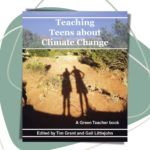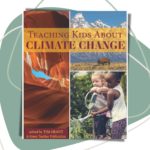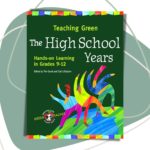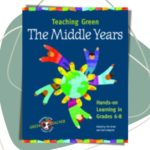From Blackberry Patches to Blacktop
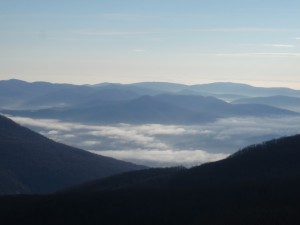
Originally appears in the Spring 2015 issue
Nostalgia: noun. A sentimental longing or wistful affection for the past, typically for a period or place with happy personal associations • the evocation of these feelings or tendencies, esp. in commercialized form. ORIGIN late 18th cent. (In the sense [acute homesickness]): modern Latin (translating German Heimweh ‘homesickness’), from Greek nostos ‘return home’ + algos ‘pain.’ (New Oxford American Dictionary)
Solastalgia: noun. From the Latin solacium (comfort) and the Greek root – algia (pain). “The pain experienced when there is recognition that the place where one resides and that one loves is under immediate assault . . . a form of homesickness one gets when one is still at ‘home’.”[i] (Coined by Glen Albrecht.)
The word solistalgia came into my world fairly recently, but the concept, sadly, is not new. It’s natural to feel sadness when we discover the damaging of a place we loved as a child, where a special event in our lives happened, or even a grand natural place we have heard about but never got to experience. I remember blackberry patches I gorged on that are now strip malls, coral reefs I explored that are now dead, and even fig trees in my yard that a neighbor destroyed. If I think of the plastic in the Pacific, burning forests in Indonesia, or melting ice caps, on one hand I just want to go back to bed and on the other I want to start a revolution! These are all experiences of solistalgia. These feelings aren’t limited to adults, or even the past, and are perhaps even more true to definition in the lives of children. When the story I’m going to share was unfolding, I didn’t have this word to describe the experience, but it is a perfect example of how children feel this confusing emotion.
I share this anecdote of children experiencing solistalgia in the hopes that once we all have a word for it, we can help diminish these types of encounters in our own students’ lives. If I knew then what I know now, I would have done everything I could to prevent the following event.
To view the photo-rich magazine version, click here.
If you are not already a subscriber, please subscribe to read the full article
Kelly Johnson is an artist, author, Montessorian, and children’s garden guide in Neptune Beah, Florida. Through her books, courses and workshops, consultations, blog, and handmade garden accessories Kelly inspires humans to connect with their natural world through gardening and the arts. Contact Kelly at info@wingswormsandwonder.com and follow her blog at wingswormsandwonder.com.
Notes
[i] Source: http://neuroanthropology.net/2010/01/30/solastalgia-and-the-ecopsychology-of-our-changing-environment/
[ii] Penn State Extension. “Loose Parts: What does this mean?” Penn State College of Agricultural Science. 2015. Web. 12 May 2015. < http://extension.psu.edu/youth/betterkidcare/early-care/our-resources/tip-pages/tips/loose-parts-what-does-this-mean>
[iii] Kahn, Peter H., Jr and Stephen R. Kellert, eds. Children and Nature: Psychological, Sociocultural, and Evolutionary Investigations. Cambridge: MIT Press, 2002. Print.
Leave a Reply
You must be logged in to post a comment.






